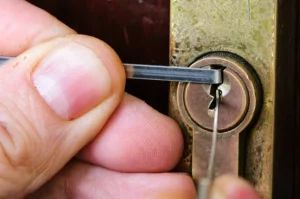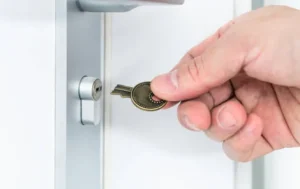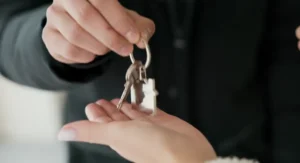Smart Locks vs Traditional Deadbolts: What’s Right for Your Property?
Upgrading Your Security? Here’s How to Choose Between Smart Tech and Old-School Strength
When it comes to protecting your home or business, the lock on your door is your first line of defense. But today, you’re no longer limited to a simple key and cylinder. From remote-access smart locks to time-tested deadbolts, there’s a growing range of options — each with its own pros, limitations, and best-use scenarios.
So which lock is right for your property?
Let’s break down the key differences between smart locks and traditional deadbolts so you can make an informed choice that fits your lifestyle, budget, and security needs.
Lorem ipsum dolor sit amet, consectetur adipiscing elit. Ut elit tellus, luctus nec ullamcorper mattis, pulvinar dapibus leo.


What Are Smart Locks?
Smart locks are electronic locking systems that allow you to control access using digital methods like smartphone apps, keypads, Bluetooth, or Wi-Fi. Many offer features like remote locking, activity logs, temporary codes for guests, and integration with smart home systems.
Common types of smart locks:
- Bluetooth-enabled: Unlocks when your phone is nearby
- Wi-Fi-connected: Remote access from anywhere
- Keypad or fingerprint access: No phone or key needed
- Hybrid models: Include backup keyholes for emergencies
What Are Traditional Deadbolts?
A traditional deadbolt is a mechanical lock that requires a physical key. It’s been the standard for decades and is still one of the most affordable and reliable security options.
Types of deadbolts:
- Single cylinder: Key on the outside, thumb turn on the inside
- Double cylinder: Key on both sides (ideal for glass-panel doors)
- High-security locks: Reinforced with pick and drill resistance
Smart Locks vs Deadbolts: Side-by-Side Comparison
| Feature | Smart Locks | Traditional Deadbolts |
|---|---|---|
| Ease of use | Keyless access, remote control | Requires a physical key |
| Security level | Varies by brand, often includes logs | Mechanically secure, no hacking risk |
| Power source | Battery-powered (needs replacement) | No power required |
| Cost | Higher upfront, more features | More affordable, fewer tech perks |
| Emergency access | App + manual override (some models) | Always accessible with a key |
| Maintenance | Occasional software or battery updates | Very low maintenance |
| Installation complexity | May require professional installation | Quick and easy install |
When to Choose Smart Locks
Smart locks are ideal if you:
- Want remote access to your home or rental property
- Need to grant temporary access to guests, cleaners, or Airbnb tenants
- Want to monitor who enters and when
- Are already using a smart home system (e.g. Alexa, Google Nest)
- Have kids who often lose keys or arrive home at different times
They’re especially popular for urban condos, tech-savvy homes, and short-term rental units.
When to Stick with Traditional Deadbolts
Traditional locks are best if you:
- Prefer a proven, mechanical security system
- Live in a low-tech or rural environment
- Want maximum durability without relying on batteries
- Have budget constraints
- Prioritize simplicity and reliability over advanced features
They’re still the go-to choice for front doors, back doors, garages, and commercial spaces where ruggedness and long-term performance matter.
Can You Use Both?
Yes — and in many cases, that’s the best approach.
For example, pairing a smart lock on the main entry with a high-security deadbolt on the back door gives you the convenience of keyless access without sacrificing mechanical security.
Some smart locks even fit over your existing deadbolt, giving you the best of both worlds without needing to remove your original hardware.
Frequently Asked Questions
Are smart locks easy to hack?
Top-tier smart locks use advanced encryption, but like any tech, they can be vulnerable if poorly configured. Always choose a reputable brand and secure your Wi-Fi network.
What happens if the battery dies on a smart lock?
Most will alert you in advance, but if the battery fails, you’ll need to use a backup key or external power port, depending on the model.
Is professional installation required?
Not always. Many smart locks are DIY-friendly, but if you want a clean fit, especially in metal doors or multi-lock systems, hiring a locksmith is a good idea.
Can smart locks work without Wi-Fi?
Yes. Bluetooth and keypad models do not require Wi-Fi, but you’ll lose remote control features.
Know Your Needs Before You Choose
Choosing between a smart lock and a traditional deadbolt isn’t about which one is better — it’s about what works best for your specific property and routine.
If you value remote control and modern convenience, a smart lock could be a game-changer. If you just want strong, no-fuss protection that lasts for years, a deadbolt still delivers unbeatable value.
At [Your Locksmith Business Name], we help homeowners and business owners in [City/Area] make smart, secure choices every day. Whether you’re upgrading to a smart lock or replacing worn-out hardware, we offer expert installation, trusted brands, and professional advice.








